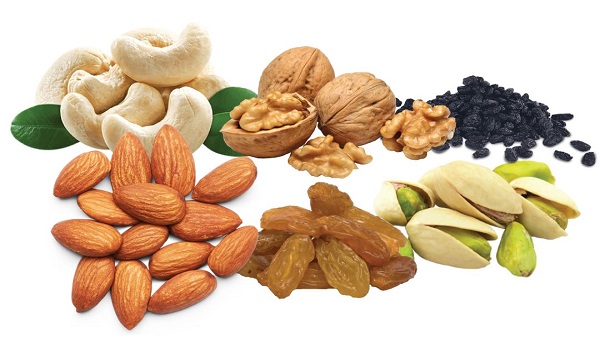In response to a government advisory on a new COVID-19 subvariant and reports of rising infections in various states, dry fruit consumption in India has witnessed a significant uptick, according to traders. Almonds and walnuts, the country’s top-selling dry fruits, are particularly in demand.
Amid a broader trend of heightened health consciousness following the pandemic, dry fruit consumption soared by 25% in 2023—the most substantial increase in five years. Consumers, now more health-conscious, are turning to these nutrient-rich sources of minerals and vitamins known to boost immunity, as revealed by traders in Mumbai and Delhi’s Khari Baoli markets.
Previously considered an occasional treat, dry fruits are becoming a regular part of consumers’ diets, resulting in an overall surge in demand. Stable prices and a smooth supply chain are contributing factors, attracting consumers to include more dry fruits in their daily routines.
Almonds, in particular, have experienced a surge in popularity, with Indians recognizing the nutritional benefits of this crunchy nut packed with protein, fibre, Vitamin E, and antioxidants. Almond imports during the April-October period of the fiscal year totalled $531.06 million, and traders predict a significant increase in imports in fiscal 2024 compared to the previous year’s figure of $1.01 billion.
Walnuts, another heart- and gut-healthy dry fruit, are also witnessing increased imports, surpassing the figures of the previous fiscal year. The United States has emerged as a top supplier of both almonds and walnuts to India, with predictions of further growth.
While the demand for dry fruits is on the rise, the share of Afghanistan, a previous major supplier, has diminished, and the US now accounts for nearly 70–80% of India’s dry fruit imports.
In addition to health considerations, the surge in dry fruit consumption is also influenced by the steady prices of almonds and walnuts, in contrast to some fresh fruits that have experienced price hikes. Cashew nuts and pistachios are also in strong demand.
As the dry fruit market continues to thrive, traders anticipate sustained growth in the fiscal year 2024, driven by heightened health awareness and concerns related to the new COVID-19 subvariant.


